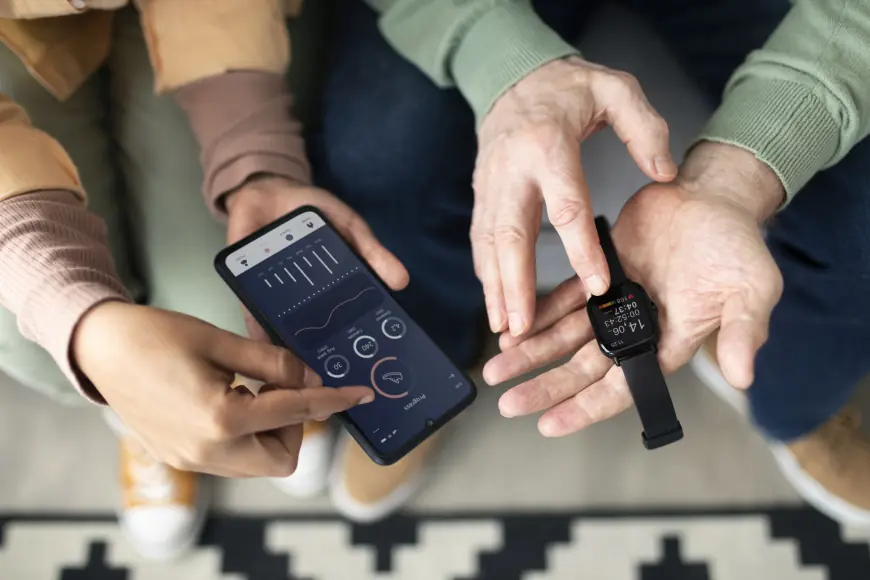How Time Tracking Apps Reshape Modern Workplaces
Explore how time tracking apps are transforming workplace productivity, accountability, and project management in the digital work environment.

Why Every Minute Counts
In the modern workplace, where efficiency and productivity define success, managing time is no longer a manual task. Whether you're running a remote team, overseeing multiple projects, or simply trying to boost individual performance, tracking how time is spent is critical. Time tracking apps have become indispensable tools in this equation. They not only help employees monitor their work hours but also offer deep insights into productivity patterns, workflow bottlenecks, and resource allocation. For businesses looking to gain a competitive edge, these apps are more than just clocks—they're strategic assets.
From Clock-In to Clockwork
Gone are the days when employees manually signed in or filled out spreadsheets to log hours. The digital revolution has made real-time tracking of work hours more precise, automated, and insightful. Today’s time tracking apps offer much more than just start-and-stop timers. With features like idle time detection, project-based tracking, and integrations with task management tools, they provide a seamless experience across devices and platforms.
These apps offer a structured way to monitor productivity without micromanaging. Managers can see how time is allocated across tasks, compare estimated versus actual time spent, and identify areas where processes can be streamlined. Employees, on the other hand, can better understand their own work habits, avoid burnout, and become more accountable.
Why Time Tracking Matters
While the primary function of a time tracking app may seem straightforward, its real value lies in the broader operational improvements it brings. Firstly, businesses can use the data to generate accurate invoices for billable hours. ensuring transparency, with clients and avoiding disputes. For HR departments, it simplifies payroll by automatically calculating work hours, overtime, and leave.
Secondly, these apps foster a culture of accountability. When team members are aware that their time usage is being measured (without compromising privacy), they're more likely to stay focused, prioritize tasks better, and reduce distractions. Moreover, the insights gathered can guide performance reviews, helping employers recognize high performers and identify those who may need additional support or training.
Empowering Remote and Hybrid Teams
The rise of remote and hybrid work environments has made time tracking more relevant than ever. With team members distributed across locations and time zones, maintaining visibility over work progress can be challenging. Time tracking apps offer a solution by allowing employees to log hours from anywhere, making it easier to manage remote workflows.
Managers can view time logs, task completion rates, and productivity trends regardless of location. This not only ensures that everyone is aligned but also builds trust. Employees get the flexibility to work on their terms, while employers gain confidence in their team’s output. It's a win-win model that balances freedom with responsibility.

Integration, Automation, and Customization
One of the most impressive aspects of modern time tracking solutions is their ability to integrate with other business tools. From project management software like Asana and Trello to payroll systems and calendars, these apps can be customized to fit seamlessly into any existing tech ecosystem.
Automation plays a huge role in saving time. For example, some apps can automatically start tracking when a user opens a specific app or joins a scheduled meeting. Others can send reminders when a user forgets to log time or has been idle for too long. These small, automated nudges enhance productivity without being intrusive.
Additionally, organizations can tailor dashboards and reports based on departments, projects, or individual KPIs. This customization empowers managers to make informed decisions, assign resources more effectively, and optimize work schedules.
Data-Driven Decision Making and Long-Term Gains
The true power of time tracking apps lies in their ability to provide actionable insights. By analyzing time data across projects, teams, and individuals, businesses can uncover patterns that reveal inefficiencies, missed deadlines, or overworked employees. These insights fuel smarter decision-making.
For instance, if a project consistently takes 20% longer than estimated, managers can investigate whether the scope is underestimated or if the workflow needs restructuring. If a team member is logging excessive hours, it may signal burnout or the need for support.
Over time, these data-driven evaluations help businesses improve forecasting, optimize staffing, reduce operational costs, and enhance overall performance. When used strategically, time tracking becomes more than just a tool—it becomes a business intelligence asset.
Choosing the Right Tool for Your Business
With so many time tracking apps on the market, choosing the right one can be daunting. The ideal solution should be user-friendly, secure, customizable, and scalable. It should also respect user privacy, especially in remote or hybrid setups. Some tools cater specifically to freelancers, while others are designed for large enterprises managing hundreds of employees.
When evaluating options, it's important to consider what your team actually needs. Do you need advanced reporting, integration with HR tools, or real-time monitoring? Or is a simple start-stop tracker sufficient? Testing a few options and involving key team members in the decision-making process can go a long way in successful adoption.
Of course, solutions like Smart Workforce stand out by offering a unified experience that blends intuitive design with robust analytics—making it easier to align time tracking with broader workforce goals.
Platforms to be Used
When evaluating time tracking apps, it’s also important to consider the level of support and onboarding the vendor provides. Even the best tools can go underutilized without proper training or guidance. Look for platforms that offer tutorials, responsive customer support, and documentation to help your team transition smoothly. Another critical factor is data security—since these tools handle sensitive employee and business information, they must comply with data protection regulations like GDPR. Scalability is equally important; the app should grow with your team, accommodating new users, departments, or integrations as your organization evolves.
Final Thoughts
In the ever-accelerating business world, understanding how time is spent has become essential for success. Time tracking apps have moved far beyond basic logging functions to become comprehensive tools for workforce management, productivity optimization, and strategic planning. They empower teams to work smarter, not harder, while giving leaders the insights they need to refine operations and meet business goals.
For businesses looking to future-proof their workforce and maximize output, adopting a reliable time tracking app is no longer optional—it’s a competitive necessity. Whether you're managing in-house staff, a remote team, or a combination of both, these tools help ensure that every minute counts.
What's Your Reaction?
 Like
0
Like
0
 Dislike
0
Dislike
0
 Love
0
Love
0
 Funny
0
Funny
0
 Angry
0
Angry
0
 Sad
0
Sad
0
 Wow
0
Wow
0


























































